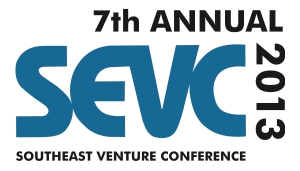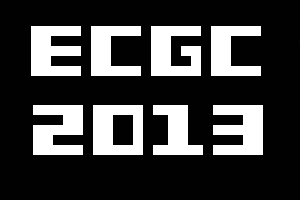Southeast Venture Conference 2013: How Things Have Changed
And How They've Stayed The Same

|
BY JOE PROCOPIO •
@jproco •
3.12.13
| |||||||||||||||||
Filed Under: NEWS: Startups
 It's hard to believe that just three years ago when I was talking about going to Southeast Venture Conference, I was more worried about what I was going to wear than anything else. Do you know why this was?
It's hard to believe that just three years ago when I was talking about going to Southeast Venture Conference, I was more worried about what I was going to wear than anything else. Do you know why this was? It was because there was freaking NOTHING MUCH ELSE TO TALK ABOUT.
March 2010, the end of the dark days, as far as dark days define the lack of startup activity in the Triangle. It was just beginning to bubble up into the mainstream, and even though I had several clients who were startups at the time, there wasn't enough of a buzz around the scene to turn that hype into a whole article.
I laugh when I read it now, but it's a knowing, chilling kind of laugh. Also, it's a terrible article, which is eventually what I think of everything I write a couple months after I write it. Sometimes sooner.
Maybe I played it a little too close to the vest back then. After all, iContact was getting up to full speed, StatSheet had just gone from hobby to company, and Charlotte's AvidXChange and BlueNano, both of whom are presenting this year, presented that year.
But man a lot of those companies are gone. Disappeared. Things were so thin back then that the odds of survival were even slimmer than normal for a startup.
Which is why it makes perfect sense that 12 months later we were all talking about a funding bubble. Yeah, we went from dearth to glut in record time. But what we forgot is what constitutes a bubble - it wasn't a whole lot of companies searching for money that made a bubble, it was a whole lot of stupid companies searching for dumb money that created a bubble.
One look at the floor -- or rather the presenting companies at SEVC in 2011 -- made it clear that these were not companies trying to sell dollars for 99 cents on the internets. I spent most of my time at SEVC that year with Automated Insights, as it was becoming Automated Insights, on our way to a Series A raise later that year.
Bubble talk continued into 2012, only this time the hot talk was about the slew of Internet 3.0 companies that were going public -- Groupon, Facebook, Zynga, etc. And regardless of what you think of the success or failure of those companies, no one is talking about how social networks and video games are sinkholes. I've even read articles about how the Groupon model wasn't the issue, it was the execution.
There was additional talk about the Series A gold rush, which would soon lead to talk of the Series A Crunch. Crowdfunding was heavily discussed, so was AngelList, and both of those concepts are still growing today. As companies like Facebook headed off to IPO, the focus started picking up for earlier stage companies again, which is exactly where we are now.
I look at the list of presenters for this year's SEVC, and I see a lot of early. A whole lot of early. But this has nothing to do with bubble, stage, or dearth or glut of startups.
As long as we're talking about customer first and modest investment sums at reasonable valuations, we'll be just fine. In fact, we'll be exactly where we should have been in those days right before the last bubble began.
You Might Also Be Interested In
 Four Reasons Why Monday Might Be the Last ExitEvent Startup Social
Four Reasons Why Monday Might Be the Last ExitEvent Startup SocialIf you're an entrepreneur or an investor, I gently implore you to go here and RSVP for Monday's ExitEvent Startup Social. And please show up, drink the free, locally-brewed craft beer, talk to your peers, and play or watch people play ping-pong.
 Startup Sweeps Takes Community Literally With New Open HQ
Startup Sweeps Takes Community Literally With New Open HQEver since I've known him, Gelbum has run Sweeps as more of an ideal than a startup, albeit an ideal with employees, customers, revenue, and now a really nice HQ just outside of Chapel Hill.
 Teambuilding Without Teambuilding
Teambuilding Without TeambuildingYesterday, Automated Insights (my actual startup), spent the day trekking out to the country to spend four hours shooting at each other with paintballs. None of us are the paintball type.
 As Independent Mobile Gaming Shops Contract, The Survivors Get Serious
As Independent Mobile Gaming Shops Contract, The Survivors Get SeriousThe roughly five-year-old mobile gaming revolution has accomplished quite a bit, turning hordes of two-person shops into instant millionaires while simultaneously killing both the console and the PC. Only it hasn't, and it was never going to.
 Preview: Here's What I Need From the New XBox
Preview: Here's What I Need From the New XBoxWhen I heard last week that you could order a pizza via XBox Live, a little part of me died inside.